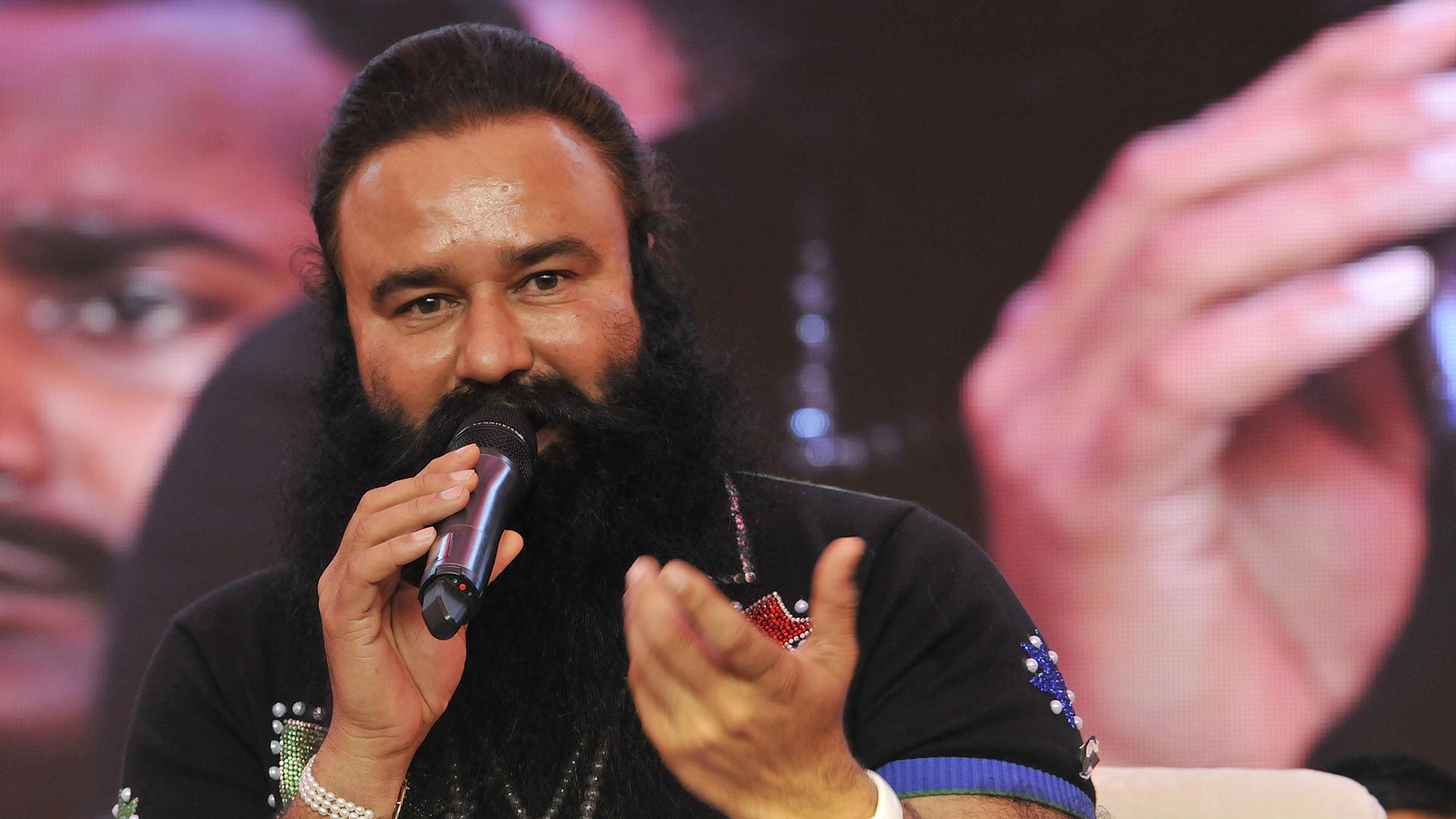Violent protests break out in India as a court convicts religious guru Gurmeet Ram Rahim Singh of rape
Gurmeet Ram Rahim Singh talks to the media about his movie "MSG — The Messenger of God" in 2015.
At least 12 people have been killed in violent protests and police have fired tear gas and water cannons after violence broke out in a northern Indian city Friday.
The violence broke out after a court convicted a controversial religious leader Gurmeet Ram Rahim Singh of rape.
Tens of thousands of followers of Singh had descended on Panchkula, where India's federal investigations agency had set up a special court to rule on the charge that he had raped two female devotees.
Singh has a vast following in the northern state of Haryana, where he runs a spiritual movement that claims to have millions of devotees around the world.
Troops and riot police had been deployed ahead of the verdict, but violence broke out as news of his conviction spread among the gathered devotees.
An AFP reporter saw police fire tear gas and water cannon into a crowd of protesters who threw stones and attacked two television vans, overturning one.
There were also unconfirmed reports of police firing into the air to disperse the crowd.
Media reports said Singh had been taken into custody under military escort. He will be sentenced on August 28.
"The court convicted Baba Ram Rahim Singh on rape charges," prosecutor Harinder Pal Singh Verma told AFP by telephone after the closed hearing.
'Guru in bling'
The 50-year-old self-styled "godman" is known as the "guru in bling" for his penchant for bejewelled costumes, although the source of his apparently vast wealth is unclear.
The rape case was brought against him after an anonymous letter was sent to then prime minister Atal Bihari Vajpayee in 2002 accusing him of repeatedly raping the sender and several other women in the sect.
A judge asked the Central Bureau of Investigations to look into the accusations, but it took years to trace the alleged victims and it was not until 2007 that two women came forward and filed charges.
India has been rocked by numerous scandals involving popular ascetics claiming to possess mystical powers, and Singh is no stranger to controversy.
In 2015 he was accused of encouraging 400 followers to undergo castration at his ashram so they could get closer to God.
He also stood trial for conspiracy over the murder of a journalist in 2002.
He describes his sect as a social welfare and spiritual organization.
Messenger of God
Speaking before his conviction, supporters who had gathered in Panchkula credited him with turning their lives around, with some saying his organization had helped them kick an addiction to alcohol.
"I've been part of the Dera movement for two decades and in that time I have not touched a drop," said Gajendere Singh, a recovering alcoholic who said he was aged around 60.
"Before joining, people did not pay me much attention. But after, I had a support network."
Singh's work has angered mainstream religious leaders in India, particularly Sikhs who say he insults and belittles their faith.
There were protests in the Sikh-dominated state of Punjab over Singh's 2015 appearance in a film entitled "MSG: The Messenger of God," which showed him performing miracles, preaching to thousands and beating up gangsters while singing and dancing.
Singh was driven from his home town to the court in a vast convoy that Indian media said was made up of over 100 vehicles.
Television images showed devotees lining the streets, many of them sobbing uncontrollably.
Roads leading to the court have been barricaded off and three stadiums set aside as makeshift prisons in case of trouble after the verdict.
by Bhuvan Bagga/AFP
Our coverage reaches millions each week, but only a small fraction of listeners contribute to sustain our program. We still need 224 more people to donate $100 or $10/monthly to unlock our $67,000 match. Will you help us get there today?
